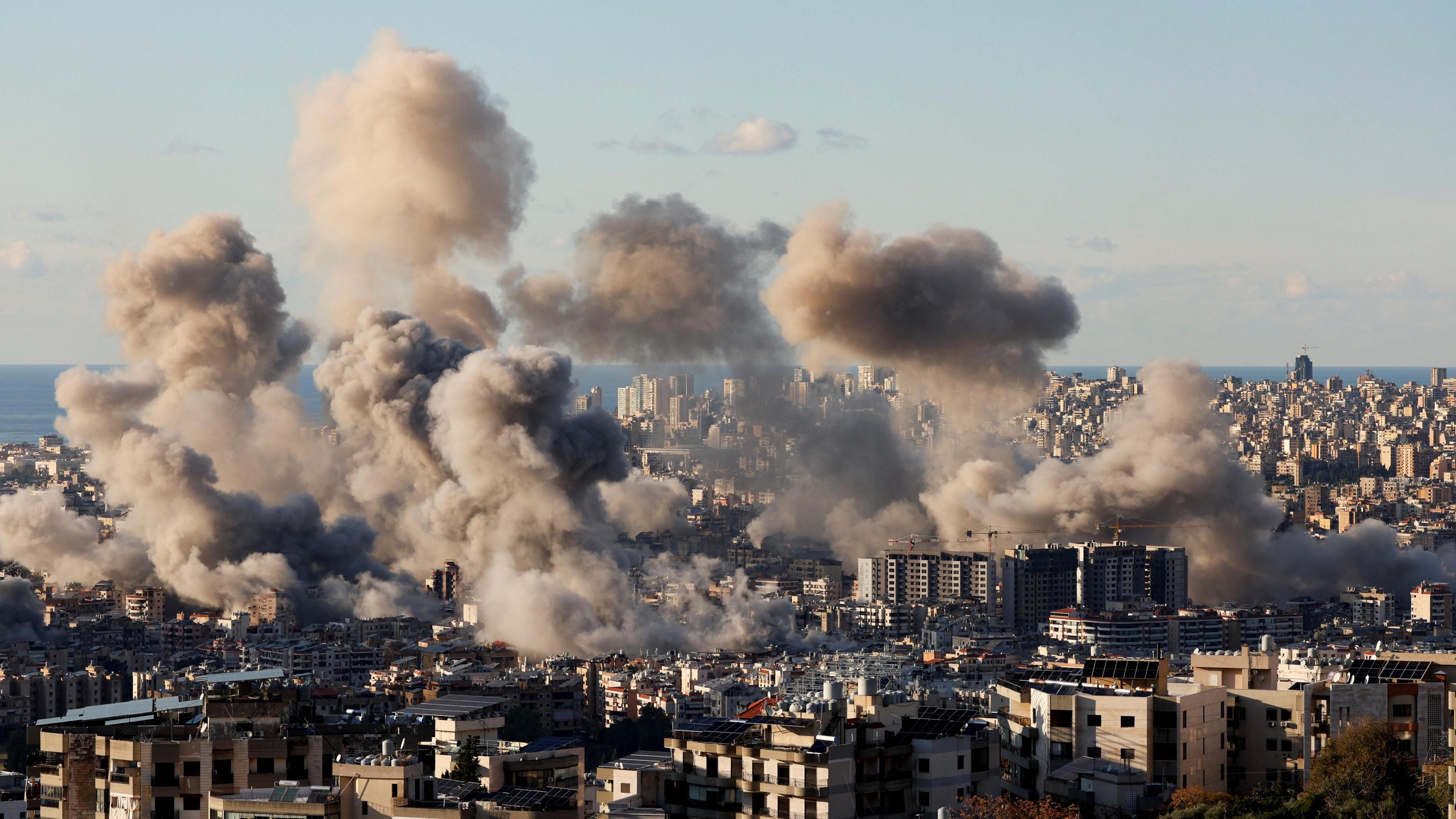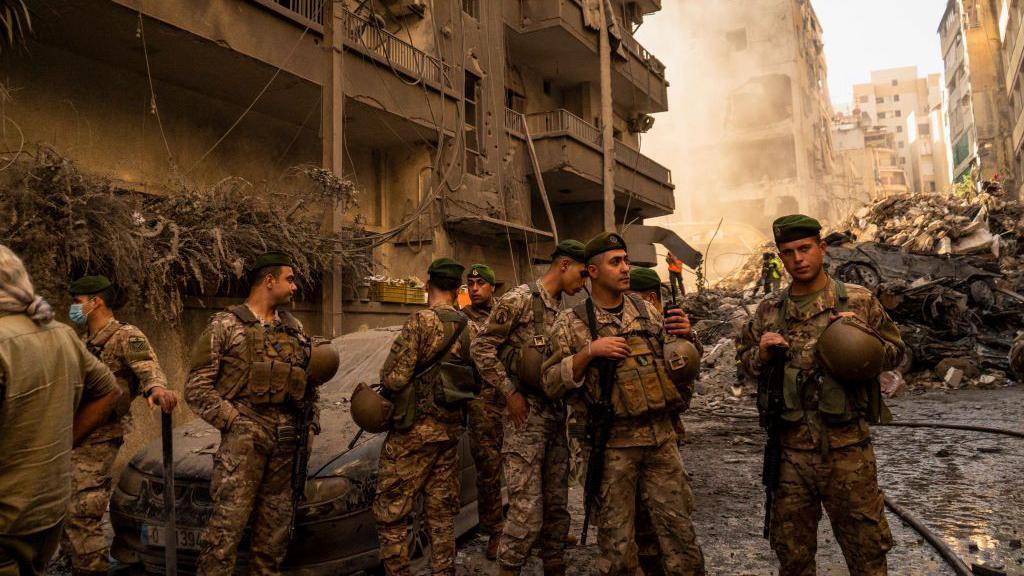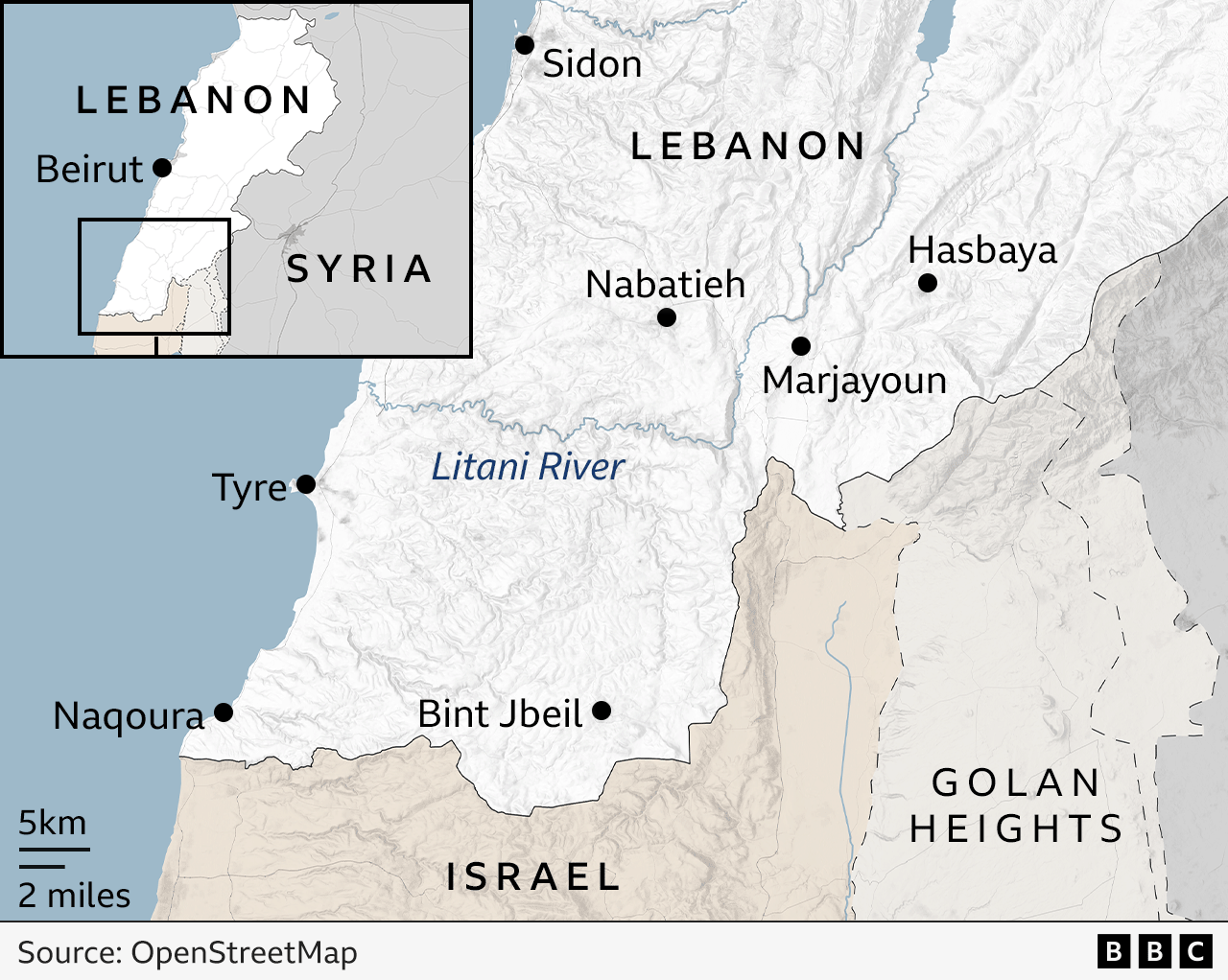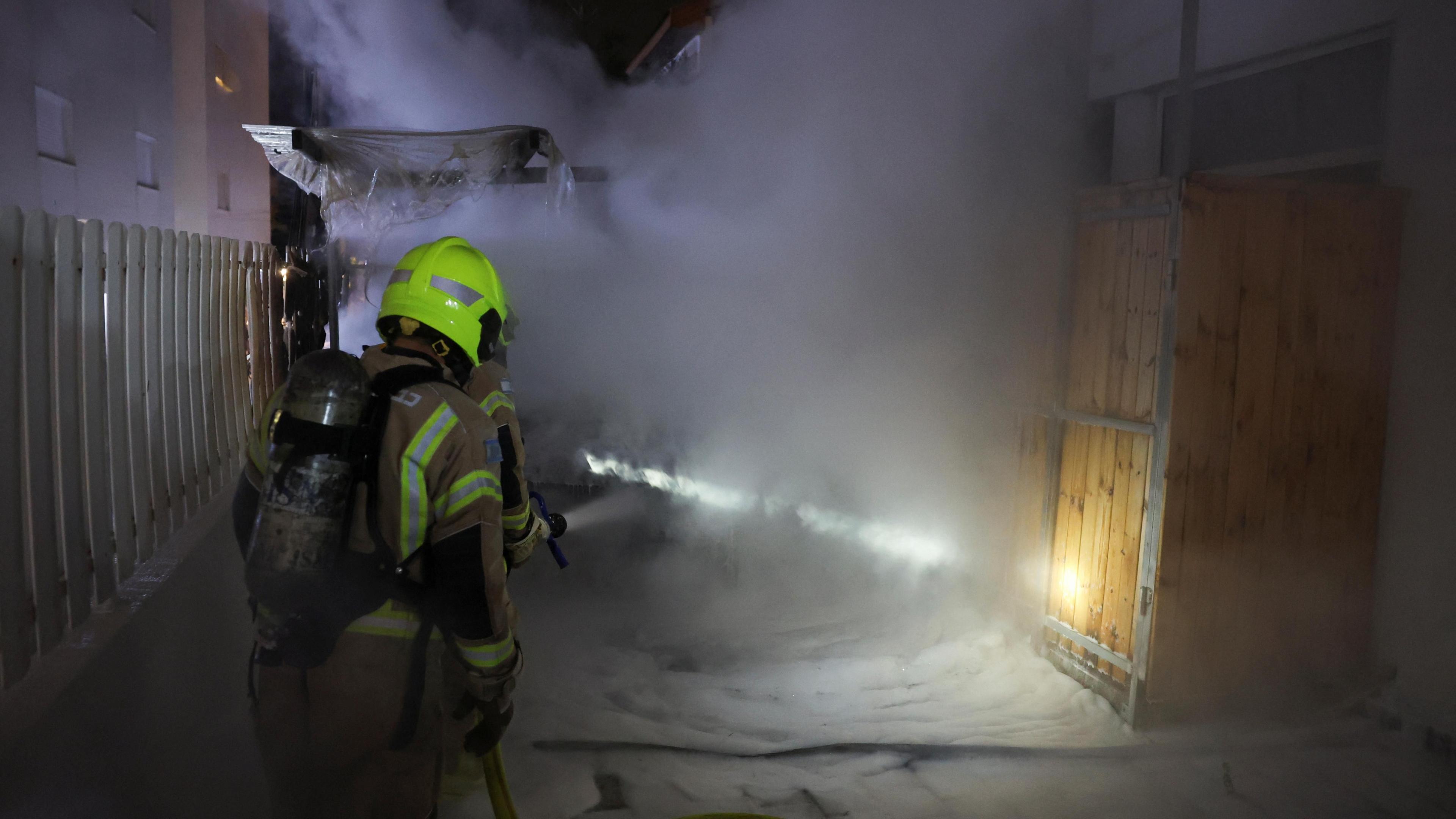Israel strikes Beirut as security cabinet prepare to vote on Hezbollah ceasefire

Israel carried out new air strikes on Beirut’s southern suburbs as the country’s security cabinet prepared to meet
- Published
Israel carried out waves of air strikes on Lebanon's capital, Beirut, just hours before the Israeli security cabinet was expected to approve a ceasefire deal with Hezbollah on Tuesday evening.
Seven people were killed when a building in the city was hit, and two dozen strikes in southern suburbs and central areas targeted what the Israeli military said were Hezbollah infrastructure sites and financial facilities.
Hezbollah also continued to fire rockets into Israel as hopes rose for an announcement of a deal to end over a year of conflict.
The proposal includes a 60-day ceasefire that will see Israeli troops withdraw from Lebanon and Hezbollah fighters removed from south of the Litani river.
Thousands of troops from the Lebanese Army are expected to be deployed, and an international committee will monitor the implementation of the ceasefire.
'Are we not humans?': Anger in Beirut as massive Israeli strike kills 20
- Published23 November 2024
Residents of Lebanese border town 'determined to stay' as rockets fly above
- Published16 November 2024
On Tuesday afternoon, just before the Israeli security cabinet began discussing the ceasefire proposal, Israeli warplanes carried out what appeared to be the largest wave of air strikes yet in Beirut’s southern suburbs.
Multiple plumes of smoke were seen rising from Dahieh, where Hezbollah is based, after the Israeli military had issued evacuation warnings for 20 buildings.
The military said in a statement that it had struck 13 Hezbollah targets in Dahieh, including an aerial defence unit centre, intelligence and command centres, weapons storage facilities and other infrastructure. Another seven strikes targeted what the military called “components of Hezbollah’s financial system”, including facilities of the Al-Qard Al-Hassan financial institution.
Less than two hours later, the military issued evacuation orders for four areas in the city itself for the first time, telling people to leave buildings in Ras Beirut, Mazraa, Msaytbeh and Zuqaq al-Blat.
Earlier on Tuesday, an air strike hit the Nuweiri area in central Beirut without warning, which indicated a possible assassination attempt.
At least one building collapsed and images showed crowds searching the rubble. The Lebanese health ministry said seven people were killed and 37 others injured.
There was no comment from the Israeli military.
The strikes happened amid an expectation that a ceasefire deal would be imminent, with Israeli Prime Minister Benjamin Netanyahu reportedly agreeing to the deal in principle.

Lebanese Army troops, seen here at the site of an Israeli strike in central Beirut, will have a key role in the ceasefire deal
The details of the proposed agreement are unclear, but it is understood to be based on the terms of UN Security Council resolution 1701, which ended the 2006 war between Israel and Hezbollah.
The resolution requires, among other things, Hezbollah to remove its fighters and weapons from the area between the Blue Line – the unofficial border between Lebanon and Israel – and the Litani river, about 30km (20 miles) to the north. Israel says that was never implemented, while Lebanon says Israel’s violations included military flights over its territory.
During the current US-led talks, according to a Western diplomat who spoke on condition of anonymity, it has been made clear to the Lebanese authorities that the post-2006 situation, in which Hezbollah was allowed to build extensive infrastructure along the border, will not be repeated.
So one of the key points seems to be the implementation of the deal. The US will lead a five-country monitoring committee, while the UN peacekeeping force in the south of Lebanon (Unifil) will be reinforced.
During the 60-day ceasefire, the Lebanese Army is expected to deploy 5,000 troops to the south, although questions remained about their role in enforcing any agreement, and whether they would confront Hezbollah if needed, which has the potential to exacerbate tensions in a country where sectarian divisions run deep.
The army has also said it does not have the resources - money, manpower and equipment - to fulfil its obligations under the deal, which will probably be alleviated by contributions from some of Lebanon’s international allies.
But there had been an acceptance by Lebanese authorities that things had to change, the diplomat added, and there was the political will to do so.
Media reports suggest the US will issue a letter supporting Israel’s right to act in Lebanon if Hezbollah is perceived as being in violation of the deal.
This Israeli demand has been rejected by Lebanon, where it is seen as a violation of the country’s sovereignty. It has not been included in the proposal deal, and will probably be made public later.
In the past few days, Israeli authorities have repeatedly said that, with or without this guarantee, they reserved the right to attack Lebanon if there was any threat coming from Hezbollah, as they already do in Syria.

"We believe we've reached this point where we're close," US National Security Council spokesman John Kirby told reporters on Monday. But he added: "We're not there yet."
The French presidency also said that negotiations had "significantly advanced" and urged Israel and Hezbollah to "quickly seize this opportunity".
The Lebanese deputy speaker of parliament, Elias Bou Saab, said there were "no serious obstacles" to a ceasefire "unless Netanyahu changes his mind".
A Lebanese source told the BBC that Hezbollah and Iran, the group’s main supporter, had said in private that they were interested in ceasefire deal.
In a televised speech last week, Hezbollah’s new leader Naim Qassem appeared to give his green light to the US-drafted proposal.
Meanwhile, there is not full support for the plan in Israel. Many of the tens of thousands of citizens displaced by over a year of fighting with Hezbollah, say it won’t make them feel safe enough to return home, and Israel’s far-right National Security Minister, Itamar Ben-Gvir, has said the war should continue until there is “absolute victory.”

The northern Israeli town of Nahariya came under rocket fire overnight
Israel went on the offensive against Hezbollah - which it proscribes as a terrorist organisation - after almost a year of cross-border fighting sparked by the war in Gaza.
It says it wants to ensure the safe return of about 60,000 residents of northern Israeli areas displaced by rocket attacks, which Hezbollah launched in support of Palestinians the day after its ally Hamas’s deadly attack on Israel on 7 October 2023.
The war has been devastating for Lebanon, where more than 3,700 people have been killed since the start of the hostilities and one million residents have been displaced in areas where Hezbollah holds sway.
The World Bank’s estimate is of $8.5bn (£6.8bn) in economic losses and damage. Recovery will take time, and no-one seems to know who will pay for it.
Hezbollah, too, has been devastated. Many of its leaders have been killed, including long-time chief Hassan Nasrallah, while its infrastructure has been heavily damaged.
How it will look like after the war remains unclear. The group has been severely weakened, some would say humiliated, but it has not been destroyed.
In Lebanon, it is more than a militia: it is a political party with representation in parliament, and a social organisation, with significant support among Shia Muslims.
Hezbollah’s opponents will probably see it as an opportunity to limit its influence - it was often described as “a state within a state” in Lebanon before the conflict - and many fear this could lead to internal violence.
Additional reporting by Ido Vock in London